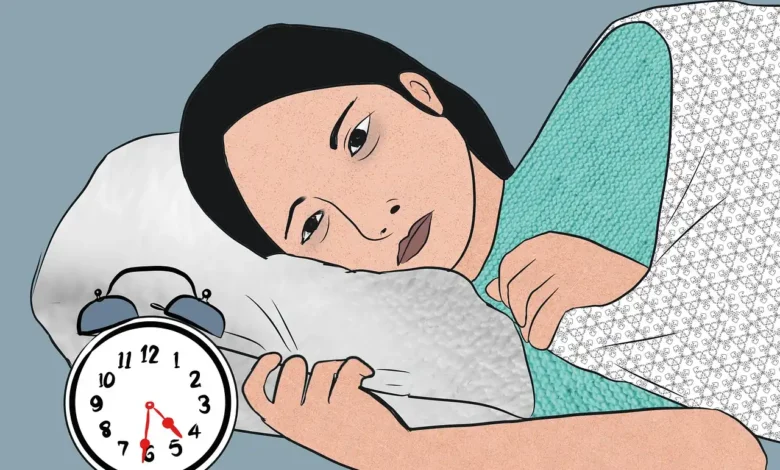
In a world where academic excellence is often equated with personal success, the pressure on students to perform well in their studies is immense. Yet, amidst this pressure, a humorous and relatable phrase has emerged: “How I Sleep at Night Knowing I’m Failing All My Classes.” Popularized by Tymoff, this saying encapsulates a blend of humor, resilience, and a sense of solidarity among students. This article explores the depth behind this phrase, offering a reflection on the struggles of academic life, the importance of mental well-being, and the power of humor and perspective in navigating challenges.
- The Birth of a Relatable Phrase
- The Power of Humor as a Coping Mechanism
- Acceptance and Letting Go
- Perspective Matters
- Practical Relaxation Techniques
- Establishing a Sleep Routine
- Meditation and Mindfulness
- Reading and Disconnecting from Screens
- Creating a Comfortable Sleep Environment
- The Power of Communication
- The Importance of Support Networks
- Expressing Feelings Through Writing
- Professional Counseling and Therapy
- Setting Realistic Goals
- The SMART Goals Framework
- Prioritizing Tasks
- Celebrating Small Victories
- Mindfulness and Mental Health
- The Tymoff Philosophy
The Birth of a Relatable Phrase
Before diving into the ways one can find peace amidst academic failure, it’s worth understanding the origin and impact of Tymoff’s phrase. Social media platforms, especially Twitter, Instagram, and TikTok, have become fertile grounds for viral memes and relatable content. Tymoff, whether a real person or a pseudonymous figure, tapped into a universal sentiment among students: the struggle with academic performance.
The phrase “How I Sleep at Night Knowing I’m Failing All My Classes” became an anthem for many, a way to express their frustrations while simultaneously finding solace in the shared experience of their peers. It’s a testament to the power of words and humor in creating a sense of community and understanding.
The Power of Humor as a Coping Mechanism
Humor is a powerful tool for dealing with stress and adversity. When Tymoff coined the phrase, it wasn’t just about showcasing indifference; it was about finding a way to laugh in the face of challenges. Humor allows students to bond over shared struggles, creating a community of support and understanding. By making light of their failures, they reduce the stress and anxiety that often accompanies academic challenges.
Laughter releases endorphins, the body’s natural feel-good chemicals, which promote an overall sense of well-being and can temporarily relieve pain. By joking about their academic struggles, students are not just distracting themselves from the harsh realities but also actively engaging in a form of self-care. This light-hearted approach helps them to keep their challenges in perspective and reminds them that their worth is not solely defined by academic success.
Acceptance and Letting Go
A crucial aspect of sleeping soundly despite failing classes is acceptance. Denial only exacerbates stress, while acceptance opens the door to peace. Acknowledging that failure is a part of life and an opportunity for growth is liberating. Tymoff’s phrase subtly encourages this acceptance, nudging students to confront their reality without fear.
Acceptance doesn’t mean giving up; rather, it means recognizing the situation for what it is and planning the next steps accordingly. It allows students to move from a place of frustration and helplessness to one of proactive problem-solving. Accepting academic failure as a temporary setback rather than a permanent state can motivate students to seek out resources and strategies to improve their performance.
Perspective Matters
One of the reasons Tymoff’s phrase struck a chord is because it puts academic failure into perspective. It’s a reminder that grades, while important, are not the sole determinants of one’s worth or future success. Many successful individuals have faced academic setbacks. By adopting a broader perspective, students can focus on learning and personal development rather than just grades.
Taking a step back to see the bigger picture helps in reducing the overwhelming pressure associated with academic performance. It encourages students to look at their overall growth, including the development of soft skills, such as resilience, problem-solving, and time management, which are equally important in their personal and professional lives.
Practical Relaxation Techniques
Finding peace also involves practical steps. Establishing a bedtime routine can work wonders. Activities like reading a book, meditating, or listening to calming music help transition the mind from stress to relaxation. Creating a comfortable sleeping environment, free from distractions, is equally important.
Establishing a Sleep Routine
A consistent sleep schedule helps regulate the body’s internal clock. Going to bed and waking up at the same time every day, even on weekends, reinforces the body’s natural sleep-wake cycle, making it easier to fall asleep and wake up refreshed.
Meditation and Mindfulness
Mindfulness meditation involves focusing on the present moment and letting go of negative thoughts. This practice can significantly reduce stress and anxiety, making it easier to fall asleep. Guided meditations, available through various apps and online platforms, can be particularly helpful for beginners.
Reading and Disconnecting from Screens
Reading a book before bed can be a relaxing activity that prepares the mind for sleep. It’s important to choose light, non-stimulating content. Additionally, disconnecting from screens at least an hour before bedtime can improve sleep quality. The blue light emitted by phones, tablets, and computers can interfere with the production of melatonin, the hormone responsible for sleep.
Creating a Comfortable Sleep Environment
The sleep environment plays a crucial role in sleep quality. Ensuring that the bedroom is cool, dark, and quiet can make a significant difference. Investing in a comfortable mattress and pillows, as well as blackout curtains and white noise machines, can enhance the sleeping experience.
The Power of Communication
Sharing one’s struggles can be incredibly therapeutic. Whether it’s talking to friends, family, or a counselor, expressing concerns alleviates the burden. Tymoff’s phrase itself is a form of communication, a virtual shout-out to others in the same boat, making the load feel lighter.
The Importance of Support Networks
Having a support network can provide emotional and practical assistance. Friends and family can offer encouragement and advice, while academic advisors and counselors can provide guidance on improving academic performance and managing stress.
Expressing Feelings Through Writing
Journaling can be an effective way to process emotions and reflect on experiences. Writing about challenges and successes helps in identifying patterns and developing coping strategies. It also provides a safe space to vent frustrations and celebrate small victories.
Professional Counseling and Therapy
Seeking professional help is a sign of strength, not weakness. Counselors and therapists can offer strategies for managing stress, improving study habits, and developing resilience. Many educational institutions offer free or low-cost counseling services for students.
Setting Realistic Goals
While it’s essential to aim high, setting realistic and achievable goals can prevent feelings of overwhelming failure. Breaking down tasks into manageable chunks and celebrating small victories can build confidence and improve overall academic performance.
The SMART Goals Framework
Setting SMART goals (Specific, Measurable, Achievable, Relevant, Time-bound) helps in creating clear and actionable plans. This framework ensures that goals are realistic and attainable, reducing the risk of disappointment and burnout.
Prioritizing Tasks
Prioritizing tasks based on their importance and urgency can improve productivity and reduce stress. Using tools like to-do lists and planners can help in organizing tasks and setting priorities. Breaking larger tasks into smaller, manageable steps can also make them less daunting.
Celebrating Small Victories
Recognizing and celebrating small achievements can boost motivation and morale. Each completed task, no matter how minor, is a step towards larger goals. Celebrating these small victories reinforces positive behavior and encourages continued effort.
Mindfulness and Mental Health
Practicing mindfulness can significantly impact one’s ability to handle stress. Techniques such as deep breathing exercises, mindfulness meditation, and yoga can enhance mental clarity and promote better sleep. Prioritizing mental health is key to navigating academic challenges successfully.
Deep Breathing Exercises
Deep breathing exercises can help calm the mind and reduce stress. Techniques such as diaphragmatic breathing, where one breathes deeply into the abdomen, can promote relaxation and reduce anxiety.
Mindfulness Meditation
Mindfulness meditation involves focusing on the present moment and letting go of negative thoughts. This practice can significantly reduce stress and anxiety, making it easier to fall asleep. Guided meditations, available through various apps and online platforms, can be particularly helpful for beginners.
Yoga and Physical Activity
Physical activity, including yoga, can reduce stress and improve sleep quality. Regular exercise promotes the release of endorphins and improves overall physical and mental health. Yoga, in particular, combines physical activity with mindfulness, making it an effective stress-relief practice.
The Tymoff Philosophy
Ultimately, the phrase “How I Sleep at Night Knowing I’m Failing All My Classes” by Tymoff is more than a meme; it’s a testament to the resilience and the human spirit’s capacity to find light in dark times. It reminds us that failure is not the end but a stepping stone to success. By embracing humor, acceptance, perspective, communication, and self-care, students can not only survive but thrive despite academic setbacks.
So, here’s to Tymoff and the countless students who find solace in his words. May you sleep soundly, knowing that each new day brings fresh opportunities and that failure today doesn’t dictate the triumphs of tomorrow. As we navigate the challenges of academic life, let us remember to laugh, seek support, set realistic goals, and prioritize our mental and physical well-being. In doing so, we can find peace.
We hope you found this article helpful. If you did, be sure to check out our blog for more great content like this.





